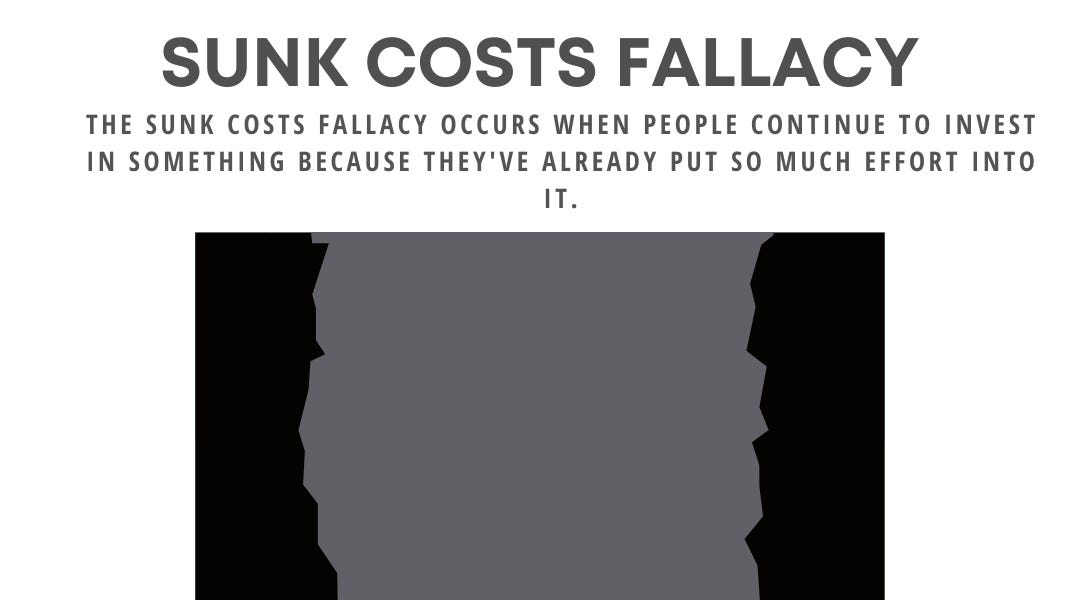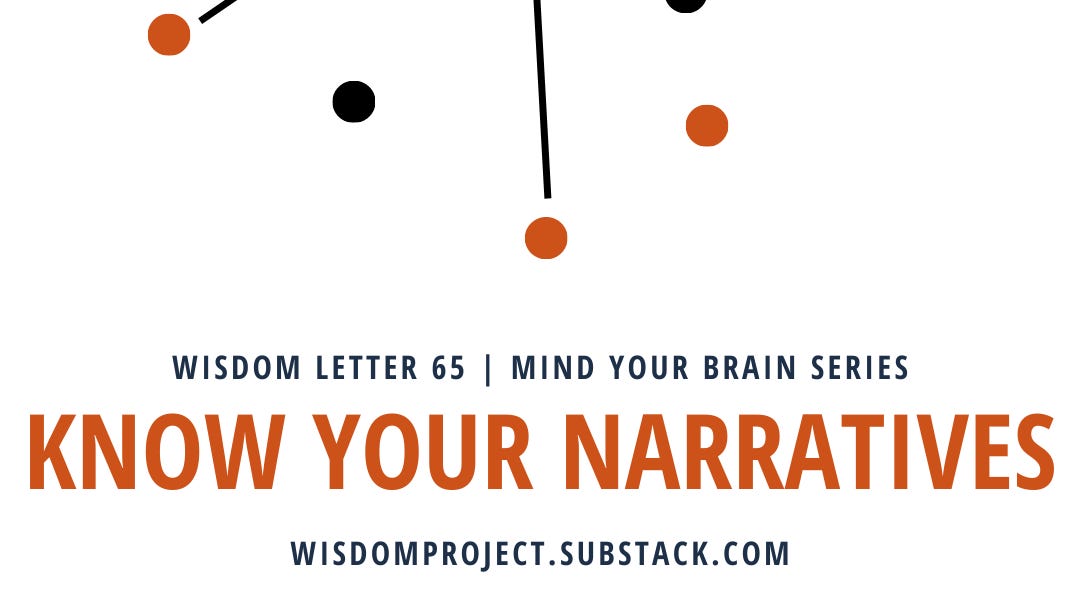- The Wisdom Project
- Posts
- 3 (Most Important) Fallacies to Avoid
3 (Most Important) Fallacies to Avoid
Don't fall for these | Wisdom Letter #291

Quick update before we start - I’m running a short survey to determine the focus of this newsletter going forward, please share your thoughts here -
What kind of content do you want to see more of?Personal development and self help, productivity tips, mental models and cognitive biases |
Now, onto the 3 fallacies to avoid -
Smart people focus more on avoiding mistakes than trying to doing extra ordinary things.
As Charlie Munger said - Invert, always invert.
I wanted to highlight 3 fallacies you should never fall for in life, probably the most painful cognitive mistakes you can make.
Sunk Costs Fallacy
Its our tendency to stick with poor past decisions because we are too deeply invested in them.
We think of those past costs as investments.
And we don’t want to back away from those investments right before they start paying dividends.
Without realizing that those supposed “investments” are actually “costs” that are dragging back our ability to make sound future investments.
Read more -
Stay up-to-date with AI
The Rundown is the most trusted AI newsletter in the world, with 1,000,000+ readers and exclusive interviews with AI leaders like Mark Zuckerberg, Demis Hassibis, Mustafa Suleyman, and more.
Their expert research team spends all day learning what’s new in AI and talking with industry experts, then distills the most important developments into one free email every morning.
Plus, complete the quiz after signing up and they’ll recommend the best AI tools, guides, and courses – tailored to your needs.
Narrative Fallacy
“We seek explanations even to the point that we will manufacture them”
- Nassim Nicholas Taleb
The Narrative Fallacy is the concept that our brain tends to fall for well crafted narratives, even when they are far from the truth.
It was coined and further explained by Taleb in his seminal books : Fooled by Randomness & The Black Swan.
We have this tremendous urge to make sense of everything. To rationalize everything. To fit every event in a neat pattern or a smart story that explains everything.
The narrative fallacy works against us when its used to influence our behavior. And it works for us when we can use it intelligently to our advantage.
Read more -
Correlation Causation Fallacy
This mental model derived from statistics is perhaps the most important tool we need to make sense of all the information thrown at us every minute of every day these days.
Just because two events are correlated does not imply that one causes the other.
Causation may or may not exist.
Their correlation may be explained by a third external factor that caused both of them.
Read more -
Do let me know what you think of these fallacies, and would you like us to cover more such biases and mental models going forward.
That’s it for today.
See you next week 👋
Cheers,
Ayush & Aditi




